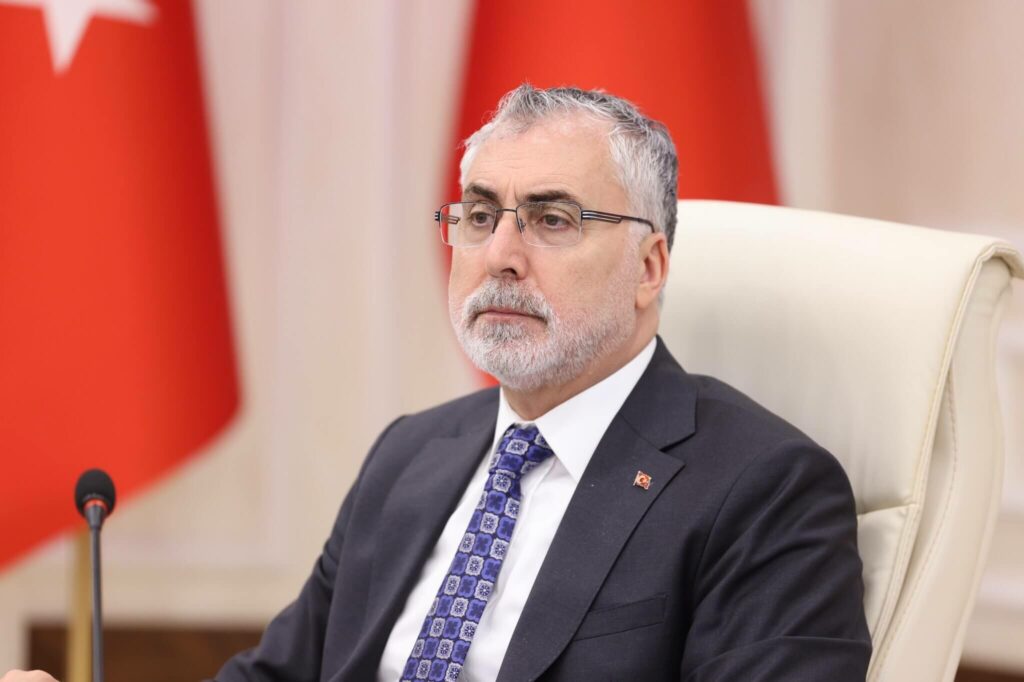A minister from Turkey’s Justice and Development Party (AKP) government has ruled out the prospects of an interim increase in the monthly minimum wage for the second half the year despite expectations as the cost-of-living crisis continues to bite Turks.
Labor Minister Vedat Işıkhan, who spoke to reporters before a party meeting on Wednesday, said there will not be an interim increase in the monthly minimum wage.
“We’ll meet to determine the new minimum wage in December,” Işıkhan said.
In the run-up to the general election in May 2023 and local elections in March, the Turkish government introduced a series of wage and pension hikes, aiming to align salaries and benefits with rising living expenses.
With no elections taking place until 2028, interim adjustments to the minimum wage and pensions seem to no longer be on the government’s agenda.
When reminded about the expectations of labor unions and minimum wage earners for an increase in the minimum wage in July due to record inflation, which stood at over 75 percent in May, Işıkhan said there are signs of economic recovery and that the government seeks to achieve the permanent, not temporary, economic well-being of the people.
The minister also ruled out any adjustments to pensions to protect retirees from the effects of constantly rising prices.
AKP Deputy Chairman Hamza Dağ, who spoke to CNN Türk on Tuesday, reaffirmed that the government has no plans for a minimum wage hike in July. He said the government is instead prioritizing the fight against high inflation.
The statements of AKP officials concerning a minimum wage hike came as a disappointment to the millions of minimum wage earners in the country.
In Turkey roughly one-third of its 85 million population earns the minimum wage.
The last time the government adjusted the minimum wage was in December 2023, three months before the local elections held on March 31.
At the time the minimum wage was set at 17,002 Turkish lira for 2024, a 49 percent increase from July 2023 and a 100 percent hike from January of the same year.
The minimum wage was equivalent to $578 in December and is now valued at $515.
While Turkey’s annual inflation was 64.7 percent in December 2023, it stood at 75.4 percent in May, according to official data.
Leader of main opposition Republican People’s Party (CHP) Özgür Özel said if holding talks with the government about a minimum wage hike is no longer possible, then people should take to the streets and fight for their rights.
He said his party would hold the “Great Labor Rally” in Turkey’s industrial hub of Kocaeli on Sunday to urge the government to lend an ear to the demands of minimum wage earners.
When a CHP delegation led by the party’s deputy chair, Yalçın Karatepe, was received by Finance Minister Mehmet Şimşek earlier this week in a rare meeting with the opposition, the CHP delegation made four main demands, including an interim increase in the minimum wage and significant pension increases.
Karatepe, who spoke to reporters following the meeting, said he did not get the impression that the government would make any improvement in the minimum wage and pensions because that would harm its efforts to rein in inflation.
He criticized the government’s reluctance to make these adjustments, which he considers essential to maintaining a decent standard of living. He noted that the prescribed inflation-related increases were inadequate and called for additional adjustments.
He said he told Şimşek that the government’s reluctance to make adjustments in the minimum wage and pensions was unacceptable at a time when inflation was skyrocketing.
Turkey has been battling soaring consumer prices and a cost-of-living crisis that prompted President Recep Tayyip Erdoğan to drop his opposition to interest rate hikes to combat inflation.
The central bank began to raise its key rate in June 2023, gradually taking it from 8.5 percent to 50 percent.
Last month central bank governor Fatih Karahan raised the year-end inflation forecast to 38 percent, up from a previous estimate of 36 percent.
The cost-of-living crisis is cited as one of the reasons for the defeat of the ruling AKP in the local elections on March 31, coming in second for the first time since its establishment in 2002.

